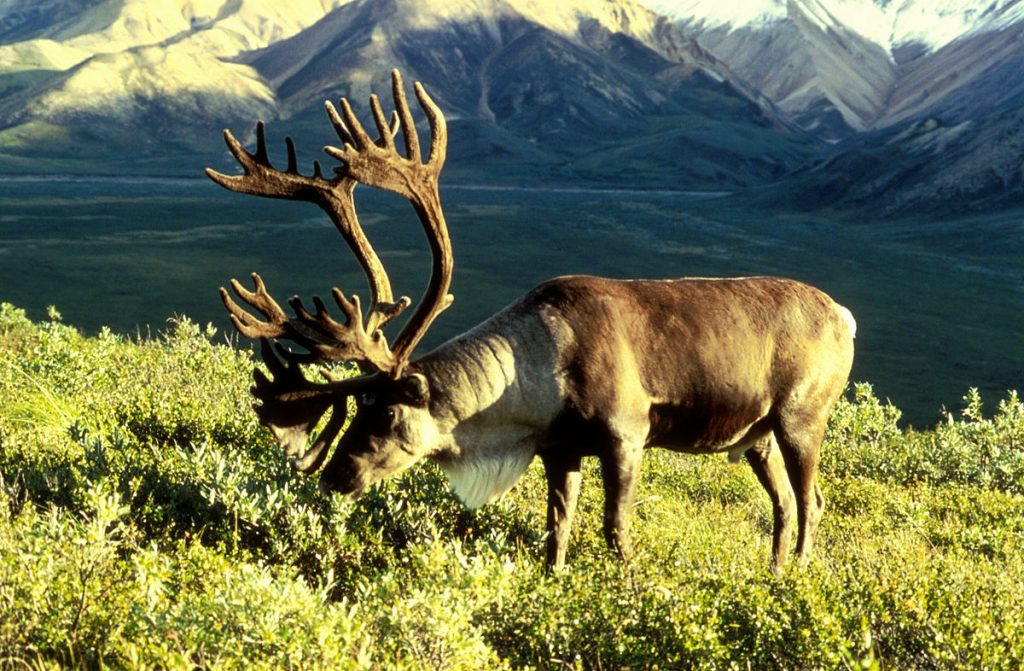Former Presiding Bishop Katharine Jefferts Schori has written a column for the Reno Gazette-Journal urging politicians to protect public lands from drilling. She explains the close relationship between humans and the caribou of the Alaskan Arctic National Wildlife Refuge, which can calve 40,000 young in the refuge each spring, and have for “tens of thousands of years”:
The Porcupine caribou share the plains with the Gwich’in people, who have been faithful stewards to these lands since time immemorial. Year after year, generation after generation, millennium after millennium, the Gwich’in have given thanks for this returning herd. They rely on the caribou – both for sustenance and for their cultural and spiritual wellbeing. They call the herd’s birthing grounds “the sacred place where life begins.” The Gwich’in are so interdependent with the Porcupine caribou that in the creation story passed through their oral history, it has been said that the Gwich’in and caribou were once a single organism, and that today each shares a piece of the other’s heart.
Drilling for oil and natural gas will endanger both this ancient species and the people who are interconnected with it:
Because of our concern for and stewardship of God’s creation, the Episcopal Church has long been opposed to exploiting the Arctic Refuge’s natural resources. We are also of one body in Christ (and of one shared heart) with the Gwich’in – 9 in 10 are my brothers and sisters in the Episcopal Church. They believe the future of the caribou is their future, and we believe that the Gwich’in’s future is our own.
Our representatives in Washington make an oath to respect and defend the rights of my fellow Episcopalians, of their fellow Nevadans, and of our fellow Americans. They make a solemn and sacred vow to safeguard our lands, our livelihood, and our sacred rituals. Yet all those words ring hollow – unless and until they also extend those same protections to the Gwich’in. Our future is their future, and abandoning their rights imperils our own.

